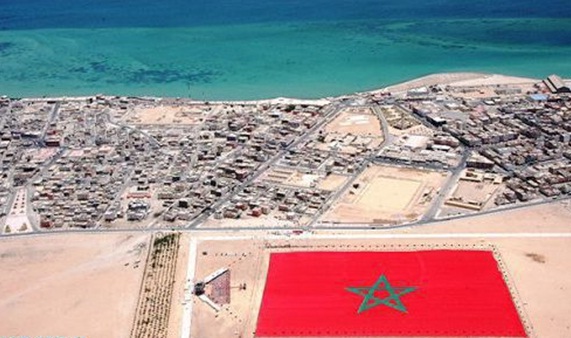
Moroccan and foreign experts stressed the full conformity of the Moroccan Autonomy Initiative with the right to self-determination, at the first international conference on autonomy and the right to self-determination, held Wednesday November 04, 2020 in Laayoune in virtual format under the auspices of the African Institute for Peacebuilding and Conflict Transformation.
Explaining the relevance of autonomy as a “third way” between outright integration and independence in the search for solutions to territorial disputes between states, University Professor Mohammed Ahmed Gain stressed its full compliance with the right to self-determination as set by the General Assembly resolutions 1514, 1541 and 2625, which are the legal canons of this right.
Autonomy is “the most modern expression of the right to self-determination”, as it reconciles the superior and sacrosanct norm of the territorial integrity of States with respect for the cultural specificity of a given population within an existing State, he said.
According to the university professor, Morocco presented the Moroccan Autonomy Initiative as a final solution to the regional dispute over the Moroccan Sahara, following a process of broad national and international consultations. The Initiative provides for the establishment of executive, legislative and judicial institutions for the Moroccan Sahara region, which will enable the population to democratically manage its local affairs in the areas of economy, the region’s budget and taxation, infrastructure, social affairs, culture and environment.
Due to its nature which “realistic, pragmatic, durable and based on compromise”, the Security Council has enshrined its pre-eminence by describing it as “serious” and “credible” in seventeen successive resolutions since 2007, the latest being resolution 2458, Gain recalled.
For his part Nikaky Lygeros, Greek professor of Geostrategy stressed that “Algeria makes a selective reading of international law.” The resolution 1514 dedicated only one article to self-determination and two articles to the trans-temporal principle of the territorial integrity of states, he explained.
In his opinion, there is no reason for resolution 1514 to apply to the issue of the Moroccan Sahara, a regional dispute inherited from the Cold War and fabricated by Algeria, because the “Moroccan Sahara is the geographical continuity of northern Morocco.”
Islam, the Arabic language and the ethnic origins of the populations are the same in the north and south of the Kingdom, united in their common allegiance to the Kings of Morocco, Lygeros said.
These are facts recognized by the International Court of Justice in the advisory opinion it issued in 1975, he added.
The decolonization of the Moroccan Sahara was sealed by the Madrid Agreement signed by Morocco, Mauritania and Spain and the General Assembly took note of it in its resolution 3458B adopted on December 10, 1975, he added.
Dismantling Algeria’s mystifications was also at the heart of remarks by Colombian political scientist Clara Riveros, president of the CPLATAM think tank, who stressed that, in contrast to Algeria’s and “polisario’s” false allegations, the self-determination of the population of the Moroccan Sahara is achieved on a daily basis, through the full enjoyment of their political, economic, social and cultural rights.
The expert outlined the importance of the New Development Model for the Southern Provinces, launched by His Majesty King Mohammed VI in November 2015, under which the inhabitants of the Moroccan Sahara participate effectively in the implementation of development policies in their region through their local elected officials.
According to Riveros, the real representatives of the population of the Moroccan Sahara are the local and regional elected officials, whose representativity has been recognized by the UN Committee of Twenty-Four through the invitation addressed to them to participate, as representatives of the Moroccan Sahara, at the Committee’s Regional Seminar in May 2019 in Grenada and at its session of June 2019 in New York, and not the “polisario”, which only exists because of Algeria’s illegal delegation of authority over the Tindouf camps.
The Webinar moderator Shaibata Mrabih Rabou, an elected representative of the Moroccan Sahara, presented the main conclusion of the event: the UN needs to work for the implementation of the Moroccan Autonomy Initiative, the one and only solution guaranteeing the exercise of the right to self-determination of the population of the Moroccan Sahara.
The Laâyoune Conference is the first in a series of conferences bringing together Moroccan and international experts aimed at debating, democratically and openly, the multiple meanings of self-determination in the 21st century, far from the fallacies and truncated readings of this norm of international law. (MAP)
